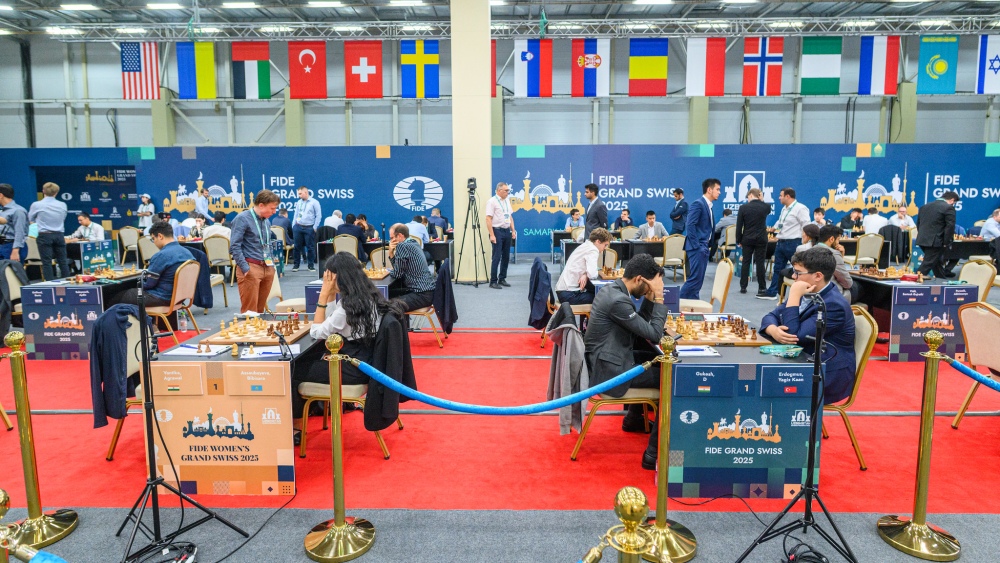FIDE launches pilot project to test “Fast Classic” for standard rating

The FIDE Council has approved a pilot project introducing tournaments with shorter time controls that will count toward the standard rating list. Current requirements Under existing regulations, the minimum time control for a game to be rated as standard depends the players’ ratings, assuming the game lasts 60 moves: If at least one player is rated 2400 or higher: 120 minutes per player If at least one player is rated 1800 or higher: 90 minutes per player If both players are rated below 1800: 60 minutes per player Pilot events As part of the pilot project, three tournaments will be played with a time control of 45 minutes plus a 30-second increment per move (starting from move one) and their results will count toward players’ standard ratings: Qatar Cup (September 7–13) QCA Training Center September Tournament Classical (September 25–27) Women’s World Team Championship (November 17–24) These events will follow standard-rating rules, but with specific conditions: No title norms will be awarded. Organizers may not schedule more than two rounds per day Why “Fast Classic”? The initiative responds to a growing demand from players and organizers to recognize “fast classic.” In modern life, time is increasingly limited, and there is a clear trend toward shorter formats that remain serious and competitive. The original idea was proposed by Oleg Skvortsov, a chess patron, organizer of the Zurich Chess Challenge 2012-2017, who suggested events with rounds lasting 2–3 hours — making it possible to hold two rounds in a single day. Next steps FIDE recognizes of the importance of this matter and is approaching it with due responsibility. The pilot events will serve as a real-world test case. After their conclusion, FIDE will conduct a thorough analysis of the outcomes and gather feedback from the participants before making a decision on further implementation.
FIDE Grand Swiss 2025, Day 2: Blunders and comebacks as favourites regroup

Day two of the FIDE Grand Swiss delivered more drama as the favourites were put to the test. World Champion Gukesh D was held to a draw by 14-year-old Turkish prodigy Yagız Kaan Erdogmus, while fellow favourite Arjun Erigaisi survived a near-loss to defeat Haik Martirosyan. In the Women’s event, several top players who stumbled at the start staged a strong comeback, but surprises continued to shake up the standings. The day’s drama began on the top board, where Uzbekistan Chess Federation Vice President, Komil Sindarov, made the ceremonial first move in the game between Gukesh and the world’s youngest Grandmaster, Erdogmus. It was exactly this game that opened with a surprise as early as move two. After 1.d4 d5, Gukesh played the unusual 3.c3 aimed at throwing him out of his preparation. Commenting in the live broadcast on FIDE’s YouTube channel, English IM Jovanka Houska branded the move as “anti-youngster”, hinting at the attempt to thwart the deep and excellent opening preparation very young players such as Erdogmus excel nowadays. The odd thing is that both players in this game are youngsters – Gukesh is 19 and Erdogmus 14. The World Champion got the initiative across the board and was notably better for the most part, but then he let it slip. White has an extra pawn, a chain in the centre, and a pin on Black’s a-runner. On top of that, Black played the last 10 moves in severe time trouble. Gukesh now plays a seemingly logical move which, however, backfires and completely wipes out his advantage. 40.Bxg5?? Instead, Gukesh should have opted for 40.Nf6, forcing Black to take – 40…Bxf6 and after 41.Bxh6! Bg7 (41…Rf7 fails to 42.hxg6 and Black is lost) 42.Bxg7 Rf3 43.h6 Rh3 44.e6 White is slowly but surely advancing his pawns to victory. However, the move played by Gukesh allowed Black to equalise. 40…Kxd5! 41.Bf6 gxh5 42.Rg7 trying to attack via the back ranks. But now 42…Rxf6 43.exf6 Re2+ and Black delivered perpetual check. ½ – ½ Erdogmus’ persistence in defending and withstanding pressure even with seconds on the clock paid off. The sharpest game among the top boards was played between India’s Arjun Erigaisi and Armenia’s Haik Martirosyan. Playing as Black, Erigaisi was on the brink of defeat on move 23. With his king exposed and pieces trapped on the queenside, Black is in severe trouble. However, White missed the best continuation and, in several moves, Black turned the tables. 24.Kh1?! 24.Ra2 with the idea of bringing the rook to the attack on the kingside was a better choice. 24…Nd7 25.Qf3 Nc5 26.Rb1 After a few hesitant moves White is now defending and shuffling, losing the advantage. A few moves later, with both trading advantages along the way, the following position emerged on the board: Instead of the natural 32.Qxg6+ Ng7 33.Bg5 with a roughly equal position, Haik played 32.Rf1?? giving Black a chance to get the upper hand. Black should have responded with 32…Ra7, bringing the rook to action and protecting the seventh rank. Arjun, however, played 32…Nxe5?? And the position was even again. Later down the line, White misplayed one more time and had to give up a piece. Erigaisi still had to be careful, but ultimately converted his advantage into a full point. Following a draw in round one, rating favourite Praggnanandhaa defeated Ivan Zemlyanskii, after Black overlooked a tactical subtlety. Black should have played 30…e6 here, to open a retreat route for his bishop in case of c4-c5. Instead, he played 30…Rc7? with fatal consequences. 31.c5! Bxc5 No other choice as bxc5 means the a5-knight will fall. 32.Bxc5 Rxc5 33.b4 fork. Black resigned. 1-0 In other developments among the leaders, Alireza Firouzja defeated Maxim Rodshtein on board two. The 22-year-old naturalised Frenchman played confidently, gaining the initiative and creating a passer on the a-file which White could not stop. Iran’s Parham Maghsoodloo is also on two points, after overcoming Spain’s David Anton. Local hope Nodirbek Abdusattorov played a challenging positional game as Black against Svane which ended in a draw. In a surprise of the round, seasoned heavyweight Alexander Grischuk lost as White to Chilean GM Cristobal Villagra after blundering in time trouble. The Women’s tournament The winner of the 2023 Women’s Grand Swiss, Vaishali Rameshbabu, continued strongly – she defeated Dutch champion Eline Robers with black pieces in just 22 moves. Vaishali played a rare line in the Morphy Defence in Ruy Lopez and White couldn’t counter. Here, in already inferior position White played 12.Nxf5? Instead of continuing development with 12.Nd2 she has accepted battle without being fully developed. 12…d5 Black wastes no time and strikes in the centre. 13.Bb3? after this mistake White’s position is beyond repair. Eline had to return the knight to d4 although after simple 13…dxe4 her position is no fun. 14.Nxf5 15.exf5 Bxf5 16.Bxd5+? Further digging herself in. The rest was a smooth sail for Black. White resigned on move 22 facing an imminent checkmate. In a big duel of the round, former World Champion Mariya Muzychuk defeated the seasoned player from Moscow, Valentina Gunina. The position was even until the early stage of the middlegame where Gunina blundered and from then on everything went downhill for her. A swift and convincing comeback by Mariya against a strong player is what she needed after losing on day one. Tan Zhongyi also made a quick comeback today, after starting the tournament with a loss. The former Women’s World Champion was victorious against Lina Nassr. In the Delayed Alapin variation of Sicilian Defence, Tan – playing as White – won a pawn early in the middlegame and gradually gained control across the board, resulting in her victory in 30 moves. Austria’s Olga Badelka outplayed Zsoka Gaal with black pieces on board four. With two points, the young player originally from Belarus has shown she is well prepared for this event. European Champion Teodora Injac also won, bouncing back after a loss in round one. One of the favourites in the event, Anna Muzychuk,
FIDE responds to reports of flag restrictions at tournament in Spain

FIDE is aware of reports circulating on social media regarding an alleged decision at a tournament in Spain to prohibit Israeli players from participating under their national flag. FIDE had no prior knowledge of this decision, did not make any ruling on this, nor was it consulted by the organisers. FIDE strongly condemns any form of discrimination, including on the basis of nationality and flag. The same rules apply to Israel and its players as to all other member federations that are not under any form of sanctions. We have sent a formal request for detailed information to the tournament organisers and will take all necessary actions to ensure our rules and principles are respected at all events.

